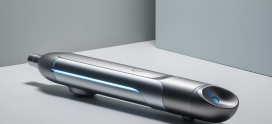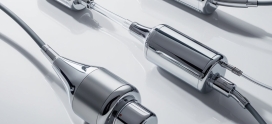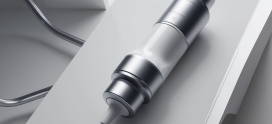
Advancements in 3D Printing for Custom Medical Devices: Dive into how 3D printing technology is revolutionizing the production of custom-fit medical devices and prosthetics
In recent years, the medical industry has witnessed a revolutionary shift towards personalized care, significantly propelled by advancements in 3D printing technology. Custom-fit medical devices and prosthetics, once a dream, are now a tangible reality, thanks to the precision, efficiency, and flexibility offered by 3D printing. However, harnessing this technology to its full potential requires more than just technical capability; it demands comprehensive consulting services that guide companies through the intricacies of 3D printing to deliver bespoke medical solutions. This article delves into how expert consulting can elevate the application of 3D printing in producing custom medical devices, ensuring they are not only innovative but also accessible and practical for those in need.
Bridging the Knowledge Gap
The primary obstacle facing many medical device manufacturers is the knowledge gap in utilizing 3D printing technology effectively. Expert consulting services play a pivotal role in bridging this gap, offering insights into the latest advancements, material properties, and regulatory considerations. Consultants with deep industry knowledge can help companies navigate the complexities of 3D printing, from choosing the right type of printer to understanding the nuances of biocompatible materials. This guidance is invaluable in accelerating the adoption of 3D printing techniques, ensuring that medical devices are produced with the highest standards of safety and efficacy.
Customization at Its Core
The ability to create custom-fit medical devices and prosthetics is perhaps the most significant advantage of 3D printing. Each patient’s anatomy is unique, and traditional manufacturing methods often fall short of providing the perfect fit. Expert consultants can assist companies in leveraging 3D scanning and modeling technologies, enabling the design of medical devices that are tailored to the individual’s specific needs. This level of customization enhances patient comfort and recovery outcomes, marking a significant step forward in personalized medicine.
Streamlining the Prototyping Process
Prototyping is a critical stage in the development of medical devices, yet it is often time-consuming and costly. 3D printing, coupled with strategic consulting, can streamline this process, allowing for rapid iteration of designs with minimal waste. Consultants can guide companies in optimizing their design for 3D printing, ensuring that prototypes are produced quickly and efficiently. This agility not only reduces development costs but also speeds up the time to market, a crucial factor in the competitive medical device industry.
Navigating Regulatory Compliance
The medical device industry is heavily regulated, and compliance with standards and regulations is paramount. Expert consulting services are essential in navigating the regulatory landscape associated with 3D printed medical devices. Consultants can provide insights into the necessary documentation, testing, and quality control measures required to meet regulatory approvals. Their expertise ensures that companies can confidently bring their custom-fit medical devices to market, knowing they adhere to the highest standards of regulatory compliance.
Enhancing Collaboration and Innovation
Finally, consulting services foster an environment of collaboration and innovation. By working closely with companies, consultants can identify unique challenges and opportunities in the application of 3D printing for medical devices. This collaborative approach encourages the exploration of novel solutions and technologies, driving the industry forward. Expert consultants act as catalysts for innovation, pushing the boundaries of what is possible in custom medical device production.
Conclusion
The advancements in 3D printing technology are revolutionizing the production of custom-fit medical devices and prosthetics, offering unprecedented opportunities for personalization and efficiency. However, realizing the full potential of this technology requires more than just technical know-how; it demands expert consulting services that provide strategic guidance, regulatory insight, and innovative thinking. As the medical industry continues to evolve, the role of consultants will become increasingly vital, ensuring that companies not only keep pace with technological advancements but also lead the way in delivering personalized medical solutions to those in need. Through expert consulting, the promise of 3D printing in custom medical devices becomes not just a possibility but a reality, marking a new era in patient-centered care.











